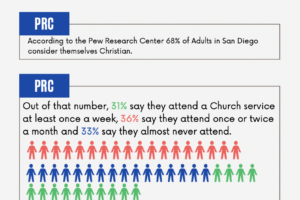American society has been making strides in talking about sexual assault, understanding what it is, supporting victims who come forward and encouraging other survivors to come forward. Many would think we would be more likely to believe victims of sexual assault because of this progress; unfortunately, this is not the case.
Dr. Christine Blasey-Ford accused Judge Brett Kavanaugh, a Supreme Court nominee, of sexual assault. Many would be shocked to know that a situation almost identical to this happened twenty-seven years ago.
Anita Hill reported Supreme Court candidate, Clarence Thomas, for sexual harassment in 1991. In both cases, the Senate moved forward with confirming the nominations of these candidates. What has and has not changed over the past 27 years?
Hill is a black woman who is a lawyer and professor. She reported Clarence Thomas’ sexual harassment in 1991 when former President Bush nominated him for the Supreme Court. Clarence Thomas is also black.
Hill worked under Thomas in 1981 in the Department of Education as an attorney-advisor. According to her testimony, after he had asked her out multiple times, Thomas started to make comments to her about watching videos of women having sex with animals, group sex, or pornography that had rape scenes.
When she testified to this harassment, Thomas claimed that it was a racist attack against him to keep him out of office. Hill passed a polygraph test while being questioned about the allegations she made, and Clarence Thomas refused to do a polygraph test. He said that Hill was “touchy” and “prone to overreact.”
By coming forward, Anita had to defend herself as if she was the one on trial, not Thomas. The Senate still moved forward with his nomination with a vote of 52–48, the closest confirmation in 100 years. Thomas is a member of the Supreme Court to this day—a position that is held for life.
Dr. Christine Blasey-Ford is a mother, wife and professor of psychology. By coming forward with the information that she was sexually assaulted by Judge Brett Kavanaugh, she and her family had to go into hiding because of the threats they faced.
Ford testified that in 1982, at a small gathering with friends, an inebriated Kavanaugh and a friend of his pushed Ford into a bedroom where Kavanaugh covered her mouth when she tried to scream for help; Ford feared that she would accidentally be killed. She said that Kavanaugh was on top of her, running his hands over her 15-year-old body, trying to take off her clothes. Ford was able to escape and lock herself in a bathroom until they left.
Kavanaugh denied that this happened, but he did not answer questions directly for much of his interview. In contrast, Ford answered every question she was asked during her four hours of questioning.
The result of this confirmation vote was also very close, but the Senate moved forward with the confirmation of Kavanaugh by a vote of 50–48. Brett Kavanaugh is now a Supreme Court Justice for life.
In both of these cases, the women were interviewed by a panel that was predominantly made up of white males. Both of these women had to re-live their harassment and assault. They were put on trial in front of the whole country.
The men accused were both allowed to be on the Supreme Court after these women came forward. Both of the men denied what these women said and claimed it was a political scheme. Twenty-seven years after the case of Hill, the same exact result has happened for Ford. A man is in the Supreme Court for life after he has been credibly accused of sexual assault.
The differences in these cases are interesting. In Hill’s case, the interviews went on for several days and there were twenty-one other people who were also interviewed. Hill was only verbally harassed—it was never a physical assault.
In the case of Ford, the interview only lasted one day and no other people were called forward. Why was so much more investigation done in the case of Hill? Why was the case of Ford dealt with so quickly? After twenty-seven years, many would think that we would have the ability to investigate more thoroughly and that we would have chosen that course of action.
Why is it that we are putting the victims of sexual assault on trial? Why do we not take victims at their word? These cases are too similar to have the same outcome, decades apart from each other.
By: Rachel Carlson








Add Comment